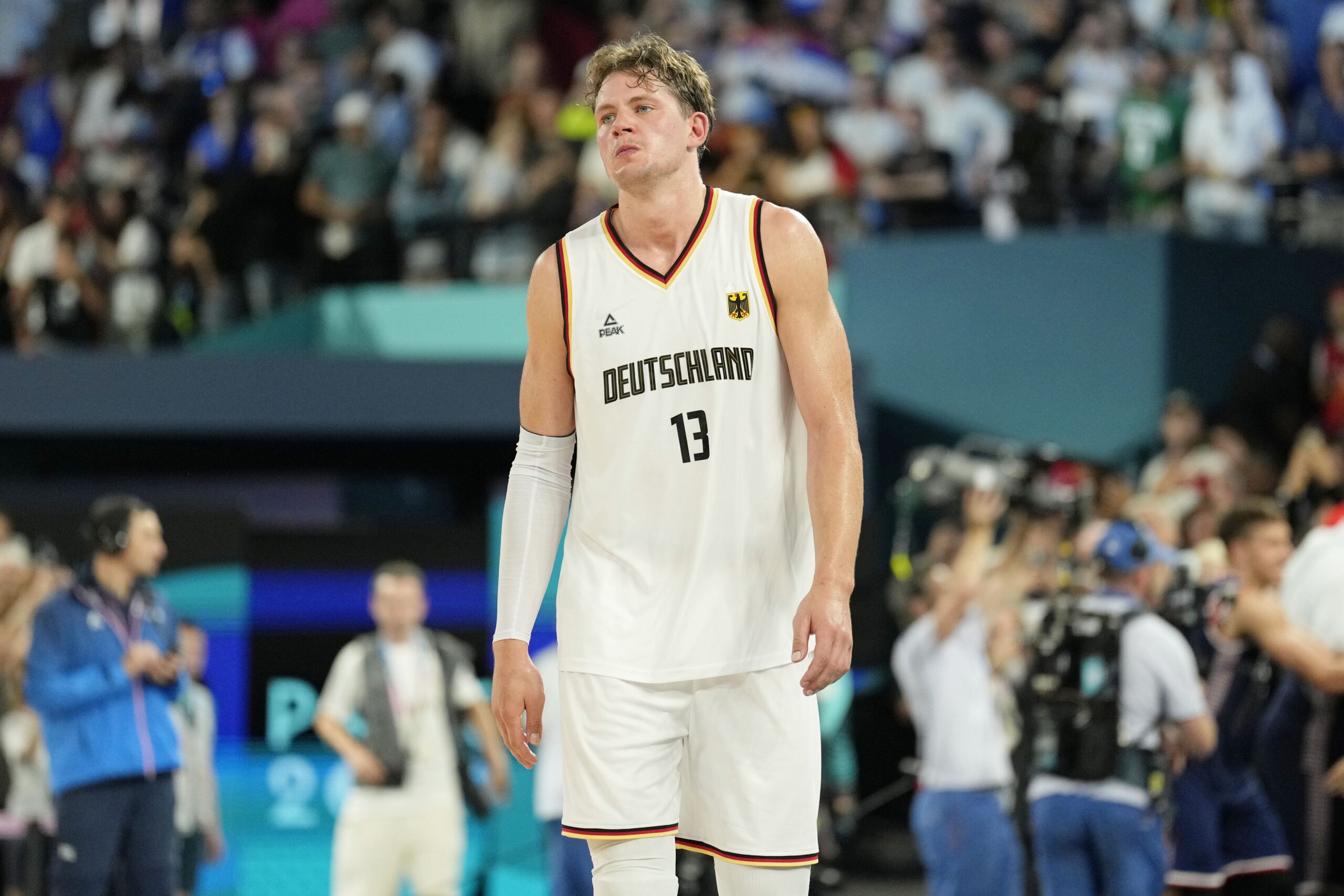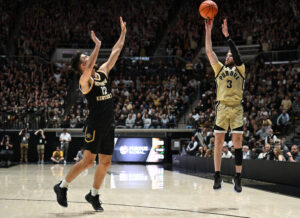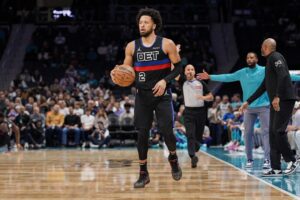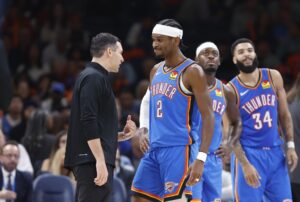As the final whistle blows at Bercy Arena in Paris, one can’t help but wonder what could have been for the current world champions. Germany headed into this competition as one of the five strongest teams in the tournament. Many expected to see them win at least a medal at the showpiece as they had essentially the same team from a year ago that won the FIBA World Cup. So how did Germany cost themselves an Olympic medal?
Did Germany Cost Themselves an Olympic Medal?
Germany was viewed as a dark horse to win a medal, perhaps reach the final, and secure an unlikely upset en route to winning gold. At the very least, Germany was expected to finally win a medal in Olympic men’s basketball. Standing in their way was the ‘Avengers‘ team in Team USA, spearheaded by LeBron James and Stephen Curry. Serbia always had a chance with Nikola Jokić as their leader. France had the home crowd supporting their team, led by the reigning ROTY, Victor Wembanyama. Canada was arguably the strongest side besides Team USA, with 10 NBA players on their roster.
Germany, led by Franz Wagner and his brother Mo Wagner as well as Dennis Schröder, ultimately lost to Serbia 93-83 in the bronze medal game. These three players combined for 47 points Franz led the way with 19 points and nine rebounds. However, they struggled to stop Jokić, who was predictably incredible, finishing with a 19-point, 12-rebound, 11-assist triple-double for his country. Vasilije Micić and Bogdan Bogdanović added 19 points and 16 points, respectively.
Continuity or Controversy?
Continuity
Heading into this tournament, Germany decided to compete with basically the same team from the World Championships a year ago. It was a notable decision because they left out Isaiah Hartenstein and Maxi Kleber. Back in 2023, leaving off Hartenstein was an understandable decision. He saw limited playing time with the New York Knicks that year, primarily coming off the bench and starting only eight games.
In 2024, the decision to not call up Hartenstein was a head-scratcher. He had just had a breakout year for the Knicks. Hartenstein received increased playing time largely because of Mitchell Robinson’s injury. Robinson, the Knicks’ main defender, suffered an ankle injury in December 2023, sidelining him for several months until just before the playoffs.
Isaiah Hartenstein is everything you need in a big man…
True 7-footer. Elite rim protection metrics. Excellent rebounder—particularly on the O-glass. Smooth playmaking hub. Brick wall screens. SOFT floater touch. He does it all and it translates to winning impact. pic.twitter.com/oELnnYlGaj
— NBA University (@NBA_University) July 1, 2024
During Robinson’s absence, Hartenstein took over and made a significant impact. He played a career-high 25.3 minutes per game last season and, in that span, averaged 7.8 points, 8.3 rebounds, and 2.5 assists per game – not bad numbers for a primarily defensive player. Speaking of defense, he also logged an average of 1.2 steals and 1.1 blocks per game last season. Hartenstein played so well that he signed with the Oklahoma City Thunder on a three-year, $87 million deal.
ESPN Sources: Free agent C Isaiah Hartenstein has agreed on a three-year, $87 million deal with the Oklahoma City Thunder. Hartenstein leave the Knicks for the top West seed eager to add his size, skill and physicality. pic.twitter.com/gbOpAw1Gsx
— Adrian Wojnarowski (@wojespn) July 1, 2024
He even declared his interest in playing for the team at Paris 2024 way back in December:
“I definitely want to play [for the German NT] in the future. If I’m invited and fit, then I’ll definitely play,” Hartenstein said back in December, via NTV. “But they’re doing a good job now, so you can’t complain about that. They’ve now won gold and want to probably perform with the same team again. I don’t think I’ll be invited to the Olympics under any circumstances.”
Controversy
Kleber didn’t represent Germany because of off-court issues with Schröder that date back to 2023. First off, Maxi Kleber didn’t appear at EuroBasket 2022. Germany lost to eventual champions Spain in the semi-finals, 96-91. Schröder appeared on the Got Nexxt Podcast and revealed the reason Kleber didn’t represent Germany. According to him, Kleber didn’t appear at the tournament because he wanted to work on his game during the summer:
“Maxi wasn’t there last year. If you didn’t commit – that was actually the message for all of us – then you won’t be there next year either,” he told the podcast.
Kleber was recovering from a knee injury at the time.
“If he says ‘I will sign my contract this summer and I want to be with the team so that I can earn even more money,’ then I understand that. But if you say to [national team coach] Gordon Herbert, ‘I’m Maxi and I want to train ball handling and work on my game in the summer,’ then, sorry Maxi, but you don’t have a game. You throw in the corner, you defend. You’re a pick-and-roll player. You’re not a Carmelo Anthony type of player. For me it’s like, ‘Maxi, working on your game? You can’t play in the NT for that?’ That bothered me a little bit, to be honest,” Schroder, 29, said.
At the time these comments were made, Kleber was on the 18-man preliminary roster for the FIBA World Cup in 2023. Schroder would release a video on his YouTube channel further explaining what he said. It’s important to put into context that there was an internal plan among the core of this team to represent Germany for the next three to four. So Schroder felt that Kleber didn’t honor this responsibility.
Ultimately, Kleber and his agent issued a public statement via BIG Magazine, where he announced his decision to skip the World Cup in light of the comments Schroeder made against him. Although Kleber didn’t refer to his teammate directly, he stressed that the “recent unfortunate and inappropriate public statements” have made it clear that he was “not fully welcome in the national team.” Kleber stood by his decision despite a private meeting with Schroder in Canada. Perhaps, he felt annoyed by the way the federation handled the whole episode.
The Last Word
The team and its officials would probably argue otherwise, but it’s clear as day that they missed the services of both players. Germany has to be honest and admit they probably cost themselves an Olympic medal.
Their two losses came at the final four stage against teams led by dominant big men: Wemby for France and Jokić for Serbia. Hartenstein and Kleber are both excellent post defenders. They would have made a difference in these matchups. These players compete against these bigs regularly in the NBA so they are familiar with their game. Considering how tight the margins for victory are in this competition, these simple decisions cost Germany the chance to finally win their first Olympic medal.






